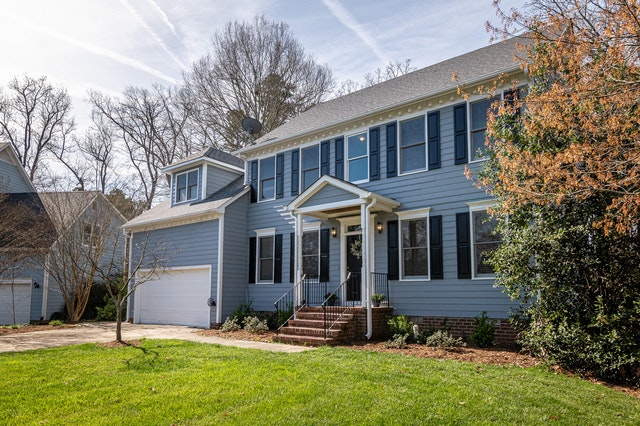 Those who are involved in the real estate industry likely know that mortgage rates are at an all-time low. At the same time, nobody wants to pay more for a house than they have to. Some of the most important factors that dictate how much someone is going to pay for a house include points and interest rates.
Those who are involved in the real estate industry likely know that mortgage rates are at an all-time low. At the same time, nobody wants to pay more for a house than they have to. Some of the most important factors that dictate how much someone is going to pay for a house include points and interest rates.
While interest rates are incredibly low, there is a way to make them lower. This comes in the form of points. This is additional money that is paid upfront to get a better deal over the life of the loan. Even though this sounds great in theory this might not be the best option for everyone. There are a few important points to keep in mind.
What Are Points?
Often, the lender is going to offer someone the option of paying points when the mortgage is created. This should be viewed as paying interest on the loan in advance. In exchange for paying interest upfront, the lender should offer to lock in a lower interest rate over the life of the loan. The more points someone purchases, the better the rate.
For example, paying one point of interest may reduce the interest rate on the loan by 0.25 percent. This is standard. Take, for example, a $200,000 home. One point on this loan would cost someone about $2,000. In exchange, the interest rate on the loan is going to drop by 0.25 percent. This might be worth it in the long run.
Discount Points
Other people might have heard about something called discount points. This is another term for mortgage points. The two terms can be used interchangeably. Typically, people can purchase as many discount points as they want, up to the limit of the lender.
An Overview Of Origination Points
Another type of points that people might have heard about is origination points or origination fees usually expressed by a percentage of the loan amount. These are points that are charged to the borrower to cover the of processing, or originating, the mortgage loan. These fees are included in the total closing costs disclosed when you apply for your home loan.
Origination points are almost always negotiable. The number of origination points that a lender is going to charge can vary from place to place. Therefore, always be sure to ask about origination points. There might be a way to get these points waived, saving the borrower a significant amount of money.
 There are lots of people out there who are searching for options for mortgage relief. A quick search will reveal options for programs such as FMERR and HARP; however, many of the articles regarding these programs are a bit outdated. This makes them misleading. Sometimes, people might think they can apply for these programs when, in reality, they cannot. These programs have expired. Fortunately, there is another option for HIRO.
There are lots of people out there who are searching for options for mortgage relief. A quick search will reveal options for programs such as FMERR and HARP; however, many of the articles regarding these programs are a bit outdated. This makes them misleading. Sometimes, people might think they can apply for these programs when, in reality, they cannot. These programs have expired. Fortunately, there is another option for HIRO. There are a lot of people who enjoy working from home; however, with the COVID-19 pandemic, many people who are not used to working from home are forced into this new arrangement. It can be hard for individuals o stay focused when they are stuck in the environment at home. Particularly if the kids are home from school, it is easy to get distracted. Fortunately, there are a few ways people can retain their sanity as they work from home.
There are a lot of people who enjoy working from home; however, with the COVID-19 pandemic, many people who are not used to working from home are forced into this new arrangement. It can be hard for individuals o stay focused when they are stuck in the environment at home. Particularly if the kids are home from school, it is easy to get distracted. Fortunately, there are a few ways people can retain their sanity as they work from home. Individuals who own their homes with a considerable amount of equity should consider looking into proprietary jumbo reverse mortgages. These can be helpful tools that may allow seniors to either pay down an existing mortgage or fund their retirement.
Individuals who own their homes with a considerable amount of equity should consider looking into proprietary jumbo reverse mortgages. These can be helpful tools that may allow seniors to either pay down an existing mortgage or fund their retirement.  Millennials are the first generation in America that will probably not be able to do as well as their parents. In the United States, there is not as much upward mobility as there was in the past. What is the cause of this?
Millennials are the first generation in America that will probably not be able to do as well as their parents. In the United States, there is not as much upward mobility as there was in the past. What is the cause of this? If you have paid attention to the news recently, you have probably heard about the coronavirus pandemic which also goes by the name COVID-19. Those who are exposed to the virus might be asked to place themselves in quarantine. Some states have even told their residents to shelter in place. While this infection has forced everyone to change the way they live their lives, there are still some home improvement projects you can tackle during quarantine to put your free time to use.
If you have paid attention to the news recently, you have probably heard about the coronavirus pandemic which also goes by the name COVID-19. Those who are exposed to the virus might be asked to place themselves in quarantine. Some states have even told their residents to shelter in place. While this infection has forced everyone to change the way they live their lives, there are still some home improvement projects you can tackle during quarantine to put your free time to use.